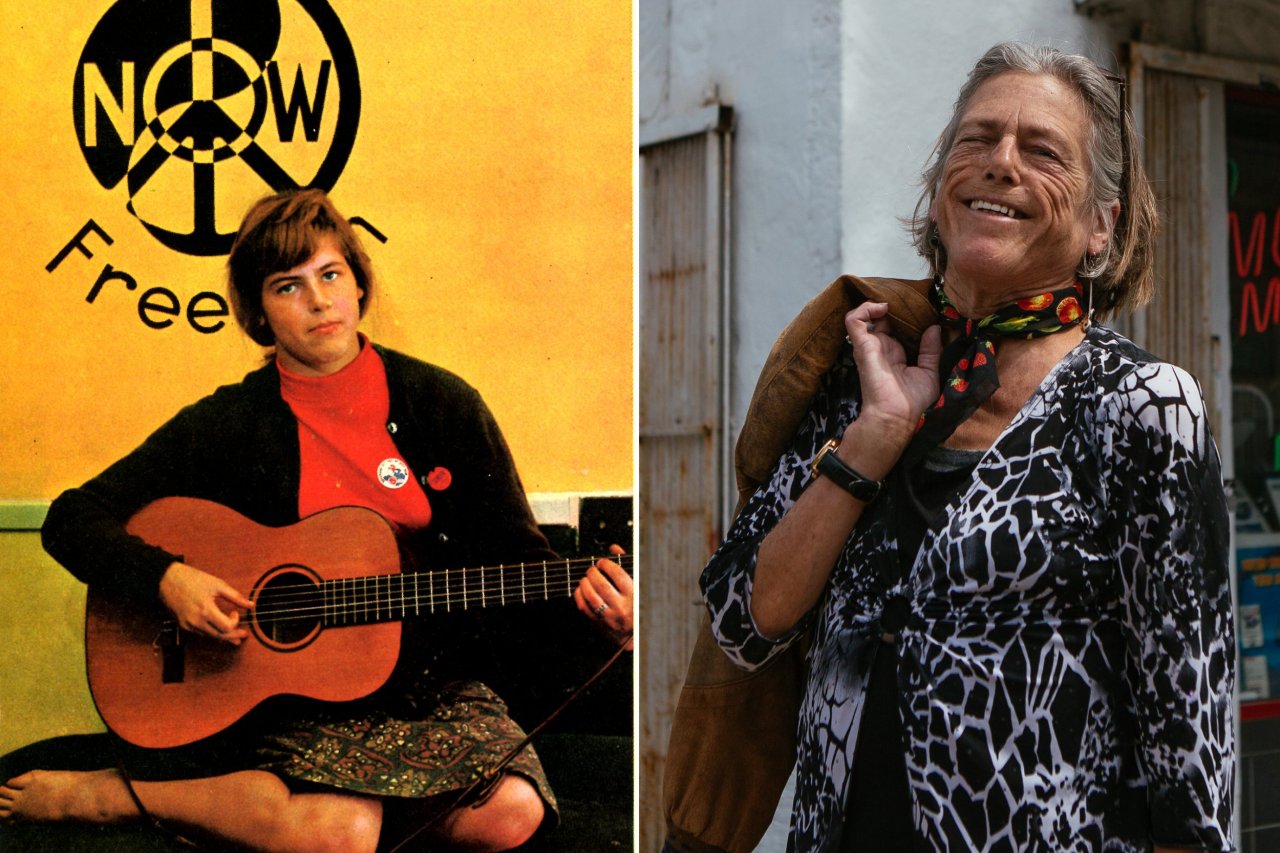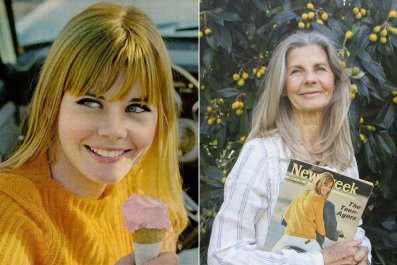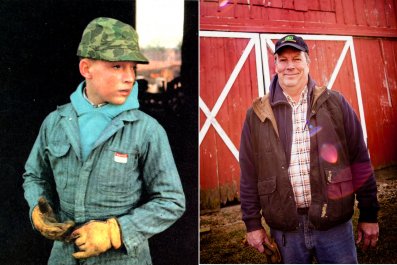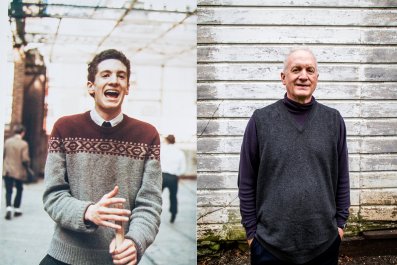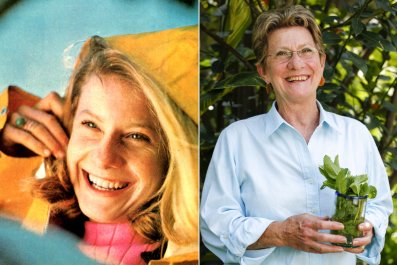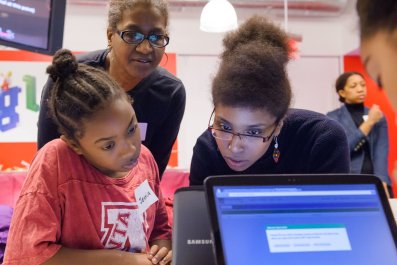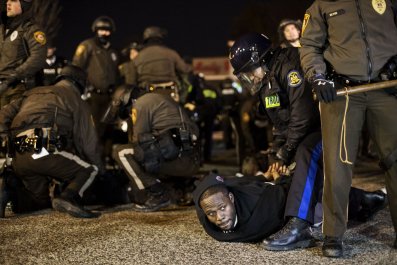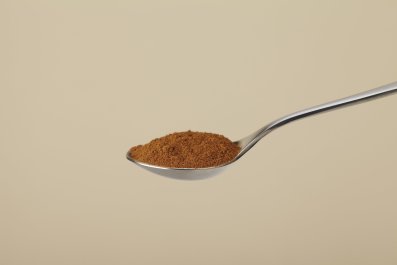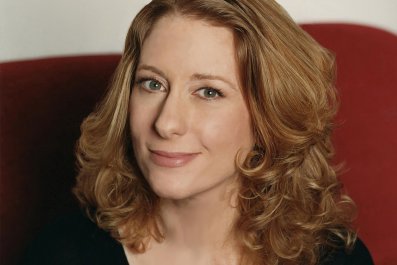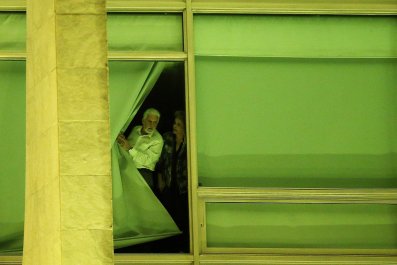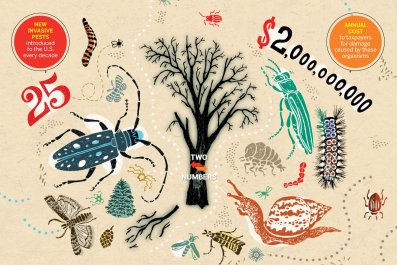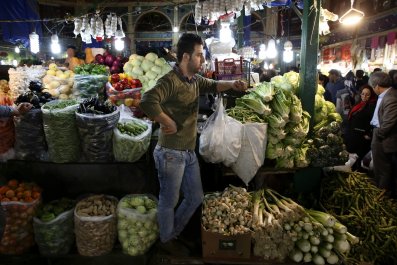In 1966, Newsweek published a landmark cover story, "The Teen-Agers: A Newsweek Survey of What They're Really Like," investigating everything from politics and pop culture to teens' views on their parents, their future and the world. The article was based on an extensive survey of nearly 800 teens across the country, and it also profiled six teens in depth, including a black teen growing up in Chicago, a Malibu girl, and a farm boy in Iowa. Fifty years later, Newsweek set out to discover what's changed and what's stayed the same for American teens. The result, "The State of the American Teenager," offers fascinating and sometimes disturbing insights into a generation that's plugged in, politically aware, and optimistic about their futures, yet anxious about their country.
When Laura Richardson moved from Boston to Berkeley, California, halfway through high school, she left behind her old friends and didn't look back. "They were a bunch of perfect, first-class...finks," she told Newsweek in 1966, when she was 17. At Berkeley High School, Richardson's new friends were into discussing five topics: Vietnam, the Bomb, civil rights, marijuana and sex. "I really fit in here," she said.
Newsweek's original profile of Richardson (who went by Laura Hausman at the time) showed her in a paisley knee-length skirt, an orange turtleneck and black cardigan, strumming a guitar in front of a peace sign with the words Peace and Freedom written around it. She was against the Bomb ("It's so completely stupid...to just be able to push a button and destroy the world"), against the Vietnam War ("My solution is simply to get out"), for the legalization of marijuana ("It's sort of like taking whiskey, only it doesn't cause cirrhosis") and "vociferously" for legalizing homosexuality.
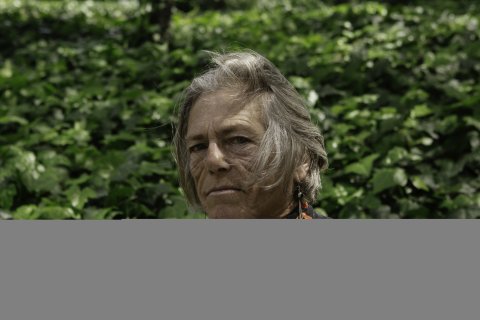
In high school, Richardson volunteered at a program for black children in San Francisco's Haight-Ashbury neighborhood, participated in a "women-for-peace" march and joined the high school arm of the Vietnam Day Committee. "School is just a place where I go to shake my head and stay awake," she said.
Her views on the world haven't budged in the past 50 years. "I'm as radical as I've ever been," says Richardson, 67, who now lives in San Leandro, California. "I still think society is basically gonna collapse due to bad economics, because we're spending money constantly that we don't have. Like a pyramid scheme. I think it's going to be that and the environment that's gonna kill us," she says. "[This country] is run by the rich. If you're poor, you stay poor. It's not a democracy. It never was."
When I ask Richardson what she did after high school, she replies, "I definitely took some time off. I didn't start college—drugs were rampant in those days, and I certainly had mine." She drove cross-country playing folk music and the blues with someone she says is Woody Guthrie's nephew. They landed gigs in clubs—she sang and played guitar—and after a few years she returned to California and enrolled at California State University, San Bernardino. She couldn't afford to graduate, so she dropped out after a couple of years. She spent her 20s and 30s in a haze of music gigs, parties and "average jobs" and has spent the past 10 years working as a vehicle registration clerk. She met her husband when she was 36, and they have no children.
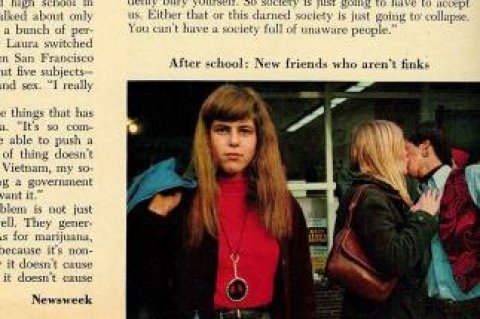
Richardson's father was a dentist, her mother a housewife, but after her parents divorced, her mother got a job as a secretary. She eventually went back to school and earned a degree in anthropology. "She didn't know it, but she had a rare cancer of the small intestine, and just as she was going for her first job, it killed her. I was 34. She was 54 when she died," Richardson says. Her older brother died of heart disease at 54. "There's nobody left. I'm it. My father lived until his 70s. His heart got him too, but he got to do everything he wanted to do."
Richardson talks with a hoarse, raspy voice that sounds as if it's about to give out any moment. When she was 44, she was diagnosed with throat cancer. She beat it, and while she may not be able to sing anymore, she still plays the guitar, keyboard, dulcimer and ukulele. Clearing her throat, she says that she has regrets—"everybody does"—but she wouldn't change a single opinion when it comes to her politics.
"The gay marriage thing is great! We've done something right. I know marijuana will do some very interesting and positive things; it isn't just about getting high," she says. Yet she has harsh words for America's "so-called election," its health care system and overcrowded prisons, and the legal system, which she says is "run by very rich and usually white guys." As for racism, "I don't see a cure…. I think economic equality would make things a lot better, but that isn't happening in this country."
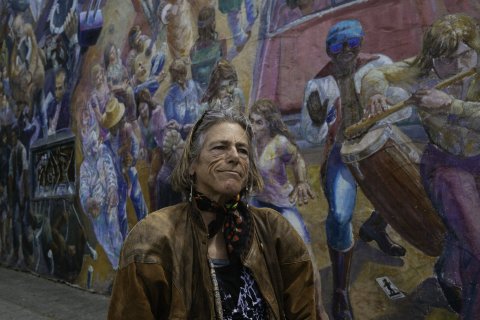
Her one piece of advice for young people reflects her regrets: "Educate yourselves. Oh, yes. In any way possible."
The greatest challenge facing teenagers today, she thinks, is the environment: "Everything else is kinda superfluous if you don't have a planet that can be lived on. I don't think teenagers will have it as good as we did…. It's a pessimistic view, but man, have they got their work cut out for them. If I was growing up today, I'd be damn angry about it."


